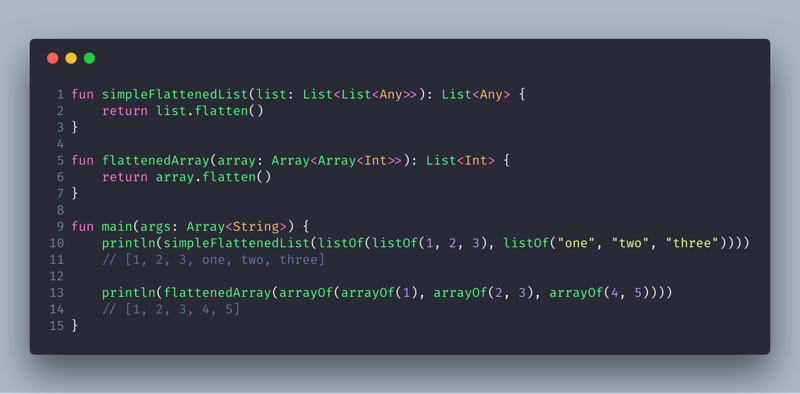

The more general listOf and mutableListOf are preferrable if there's a change you'll share your code between platforms later - as these are parts of the standard library, they can return an ArrayList on the JVM, but different platform specific implementations if you compile to JavaScript or Native.

There's arrayListOf, sortedSetOf, linkedMapOf, and a couple more - there doesn't happen to be a linkedListOf, but you could probably implement it yourself if you need one and don't want to use the LinkedList constructor. So, you must create the objects with the specified wrapper class. There are a couple functions that explicitly return a more specific type, if you do need them. Again, this is currently backed by an ArrayList, but this is an implementation detail. If you use mutableListOf, again, you're only saying you want something containing your elements that implements MutableList, but the implementation is up to the standard library. As pointed out in comments here, it's actually backed by an Arrays.ArrayList, which is a slightly different class.

The remove() method of the LinkedList class is used to. Instead, it only operates on everything in the data class Node. In reality, this will probably still be a under the hood if you're on the JVM. Here, the set() method changes the element at index 3 to Kotlin. The class LinkedList doesnt have any features of its own, and no state. This problem is also used to solve bigger linked list. By using this function you're implying that you don't care about how it's implemented. Implement Leetcode-Kotlin with how-to, Q&A, fixes, code snippets. linkedList.If you use listOf, you'll get some sort of List implementation, with the read-only List interface, containing the elements you've provided as arguments.
For example, // create Integer type linked list LinkedList


 0 kommentar(er)
0 kommentar(er)
